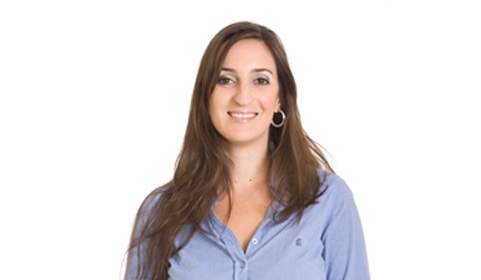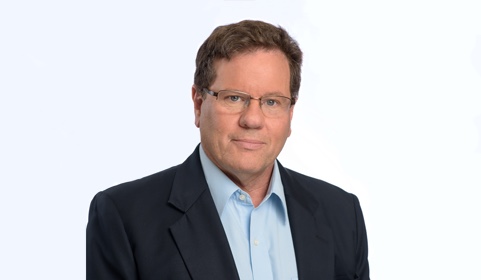Patentability of Technological Software-Related Inventions



Four years after a decision by the Commissioner of Patents in Israel, on patentability of business methods and software-related inventions, that marked a radical set-back in the ability to secure protection on such inventions in Israel, and subsequent decisions by the Commissioner and his Deputy that followed the same restrictive line, the Commissioner has finally agreed to open to discussion the Israeli Patent Office’s current restrictive policy on this issue, and has invited the public to comment on the Office’s current policy.
Patentability of software-related inventions in Israel needs to be examined in light of the provisions of Section 3 of the Israeli Patents Law1. The legal situation in Israel, regarding patentability of software-related inventions, followed a ruling of the Jerusalem District Court (1994)2. In this ruling the court took a harmonizing approach, setting out standards that were comparable to those in the USA for patentability of software-related inventions in Israel. The Court decided that a software-related invention may be patentable even where the patentability resides in its software part3. In reaching its decision, the Court drew parallels between the statutory category “process” in Section 3 of the Israeli Patents Law4 and Section 101 of the US Patent Act. The Court also expressed a favorable view to the EPO approach to patentability of such inventions.
For many years, in the wake of that District Court Decision, patent applications directed to software-related inventions were allowed by the Israeli Patent Office (IPO). In particular, patent applications directed to “technological software-related inventions”5 (i.e. inventions which solve a technical problem and are of technical character), were allowed.
Often, even inventions that could have been qualified as business method type inventions, for example those relating to Internet applications, which lack a technical character, were allowed. This changed about four years ago with the adoption of a restrictive stance on such patents by the IPO.
The IPO’s new position on patentability of software-related inventions was summarized in a decision by the Commissioner6, in which he stated that for inventions of this nature to be patentable, it is required that “the software element is an integral and essential part of the physical system as a whole”. The Commissioner’s position was also manifested in informal IPO guidelines to the effect that for a software-related invention to be patentable, the essence of the invention must reside in the hardware. In other Decisions, the Deputy Commissioner stated his opinion that software-related inventions should be protected under the Copyrights Law only7.
The positions taken by the Commissioner and his Deputy in their decisions and in the informal IPO guidelines appear to contradict the 1994 District Court Ruling noted above, and are also not in agreement with the legal situation for such inventions in leading jurisdictions. Thus, according to the current view of the IPO, not only business method inventions are excluded from patentability (which is also the current view in most jurisdictions) but also “technological inventions” in the field of software are excluded, deviating from a consensus view in leading patenting jurisdictions, including US, Europe, Japan and China, that consider such inventions to be patentable.
The restrictive policy of the IPO was, and still is, reflected in Examination Reports issued by examiners, who examine such software-related inventions. While it was occasionally possible to overturn restrictive examination results in oral interviews with examiners, the reality is that patents on such inventions have become extremely hard to obtain.
Succumbing to persistent approaches made by us, the Commissioner finally agreed to organize a round-table conference with the IPO and external participants to discuss the IPO policy concerning software-related inventions.
The meeting took place on October 15, 2009. IPO participants were the Commissioner, some senior officials and examiners in this specific field, while the outside participants included authors of this Newsletter, as well as some representatives from the local AIPPI group, the Israeli Patent Attorneys Association, and the Bar Association of Israeli lawyers.
At the round-table meeting we argued that the current, very restrictive policy is inconsistent with the District Court Ruling noted above. It was also stressed that such a restrictive policy goes against the commercial needs of both domestic and foreign applicants in protecting their software-related inventions, particularly when bearing in mind the significance of the software industry in Israel. We also suggested examining whether it would be appropriate to adopt the same criteria in Israel, which are already applied in the USA or Europe, in agreement with the specified UTC ruling8. Certain participants also commented that an overly restrictive approach of the IPO towards patentability of software related inventions may have an adverse effect on selecting Israel as a Preliminary International Search or Examination Authority9.
Following this round-table conference, the Commissioner invited the public to submit position papers on the IPO’s guidelines for examining software-related inventions. The position papers may be submitted by 1 April 2010. Many interested parties, including international corporations filing patent applications in Israel, large domestic corporations, universities, start-up companies, and some private inventors, have already submitted position papers. We too intend to submit such a paper, and will be pleased to act as a channel for submitting any position papers prepared by our associates or clients.
1 Section 3 reads:
An invention, whether a product or a process in any field of technology, which is new and useful, can be used industrially and involves an inventive step – is a patentable invention.
2 C.A. 23/94 (Jerusalem) United Technologies Corporation v. The Registrar of Patents, Designs and Trademarks, District Court Decisions, Vol. 26 (8), 729 (hereinafter: “UTC”).
3 The Court held in UTC that, for the purpose of patentability under Section 3, a claim reciting a known hardware component and a new software component should be viewed as a whole, similar to the ruling of the US Supreme Court in Diamond v. Diehr (1981).
4 As was in effect in 1994. Section 3 was later amended on January 1, 2000, in compliance with Trips to include “any field of technology”.
5 A term that was used by the Israeli Commissioner in a recent Notification published by the Patent Office.
6 Ex Parte proceedings under Section 46(a) of the Law in the matter of Patent Application No. 131733 in the name of Eli Tamir, Decision dated September 21, 2006;
7 Girafa.com, Inc., v. Melinek Oded, application for cancellation of patent no. 142049, Decision dated December 28, 2005; Biosense, Inc.. v. Elbit Systems Inc., Haifa, Israel, oppositions to patent applications no. 126864 and 125755, Decision dated April 16, 2009.
8 While patentability criteria in other jurisdictions are still somewhat in a state of flux (see for example, the 22 October 2008 referral by the President of the EPO to the Enlarged Board of Appeal of four questions on the patentability of software-related inventions; or the Appeal In re Bilski, which is currently awaiting decision by the US Supreme Court), they still offer a relatively clear and concise policy for providing protection for software-related inventions.
9 On August 15, 2009, WIPO decided to appoint the IPO as an International Searching and Preliminary Examining Authority under for PCT applications. For a duration of two years from the WIPO decision choosing IPO as a searching and examining authority, for a primary or supplemental search, it will be open only to Israeli applicants. After this trial period, the IPO will be open to serve applicants of all nations.
This article is provided for general information only. It is not intended as legal advice or opinion and cannot be relied upon as such. Advice on specific matters may be provided by our group’s attorneys.
